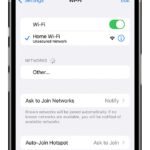We all know that familiar tickle in your nose, the one that builds until it erupts in a sneeze. Sneezing is a common bodily function, a reflex designed to clear irritants from your nasal passages. But what does it mean when those occasional sneezes become frequent? If you find yourself asking, “Why Do I Keep Sneezing?”, you’re not alone. Let’s delve into the reasons behind persistent sneezing and what you can do about it.
Sneezing is essentially your body’s natural cleaning mechanism for the nose. Dr. Frederick Yoo, an expert otolaryngologist and sinus surgeon, explains that sneezing is often triggered by irritants affecting the trigeminal nerve in your nose. This large nerve has branches throughout your face, and when irritants like allergens, foreign objects, mucus, or even dried mucus (boogers) stimulate it, your body initiates a sneeze to expel them.
Beyond common irritants, several other factors can contribute to why you might be sneezing more than usual:
- Allergens and Irritants: These are often the most common culprits. Pollen, dust mites, pet dander, mold, and even strong perfumes or smoke can irritate your nasal passages, leading to repeated sneezing.
- The Snatiation Reflex (Full Stomach): Ever sneezed after a big meal? This is known as the snatiation reflex. The stretching of your stomach after eating can, in some people, trigger a sneeze reflex. While the exact mechanism isn’t fully understood, it’s a recognized phenomenon.
- Cold Air: A sudden blast of cold air can be surprisingly irritating to your face and nose. Your trigeminal nerve can interpret this cold air as an irritant, leading to a sneeze.
- Bright Light (Photic Sneeze Reflex or ACHOO Syndrome): Do you ever sneeze when you step into bright sunlight? This is likely due to the photic sneeze reflex, also known as Autosomal Dominant Compelling Helio-Ophthalmic Outburst (ACHOO) syndrome. This condition affects approximately 30% of the population and is often hereditary. Bright light triggers the sneeze reflex in susceptible individuals.
- Sexual Arousal: Interestingly, the nervous system plays a role in both sneezing and sexual arousal. Due to this neurological connection, sexual arousal can sometimes trigger a sneeze in some people.
- Postictal Sneezing (Seizures): For individuals with epilepsy, frequent sneezing after a seizure, known as postictal sneezing, can occur. It’s important for those with epilepsy to be aware of this potential post-seizure symptom.
Is Frequent Sneezing Normal or a Cause for Concern?
Experiencing multiple sneezes in a row is perfectly normal. Often, it simply takes more than one sneeze to effectively clear the irritant from your nasal passages. Studies indicate that most people sneeze around four times a day.
Dr. Yoo notes, “Some people notice they sneeze the same number of times, every time. Again, this is completely normal, sometimes it’s more habitual than anything else.”
However, if you observe a significant increase in your sneezing frequency, it could be a sign of underlying issues. Allergies, either seasonal or year-round, are a primary suspect. Another possibility is chronic rhinitis, which is inflammation of the nasal cavity.
If you are concerned about a sudden or persistent increase in your sneezing, it’s always advisable to consult with a healthcare professional to rule out any underlying conditions and discuss potential management strategies.
Managing Frequent Sneezing
While you often can’t stop a sneeze once it’s started, there are ways to manage and potentially reduce frequent sneezing.
Dr. Yoo suggests, “Some people find relief if they pinch the nose.” However, the most effective long-term approach to minimize sneezing is to focus on good nasal health and avoiding triggers.
Here are some helpful tips:
- Identify and Avoid Allergens: If you suspect allergies, try to identify and avoid your specific triggers. This might involve allergy testing and strategies to reduce exposure to pollen, dust mites, pet dander, or mold in your environment.
- Blow Your Nose Regularly: Keeping your nasal passages clear of mucus and irritants can help reduce the urge to sneeze.
- Nasal Saline Irrigation or Sinus Rinse: Using a nasal saline rinse can effectively flush out irritants and allergens from your nasal passages, helping to reduce inflammation and sneezing. This is a gentle and effective way to maintain nasal hygiene.
In conclusion, occasional sneezing is a normal and healthy bodily function. However, if you’re experiencing frequent and persistent sneezing and asking “why do I keep sneezing?”, it’s worth considering potential triggers like allergies or irritants. Practicing good nasal hygiene and consulting with a doctor if you have concerns can help you manage your sneezing and breathe easier.

